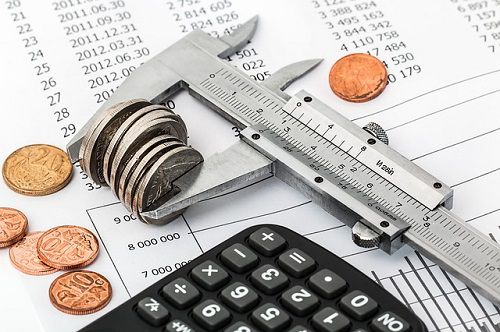In a brick and mortar casino, everything is designed specifically to take your money. From attractive young croupiers to endless supplies of alcohol - every aspect has the sole purpose of making you feel as comfortable as possible so that you prologue your stay at the casino and leave as much of your money there as possible.
In an online casino, the atmosphere is very different. It is necessary to keep in mind that any given strategy you choose in terms of money management will have absolutely no effect on the house edge. The goal of effective bankroll management is, simply put, to bet more when you are winning and less when you are losing.
Two Basic Rules of Money Management
[caption id="attachment_4216" align="aligncenter" width="500"] Money Management[/caption]
Money Management[/caption]
- Never play above your bankroll. The most important thing for you to do is to set a specific budget dedicated directly for gambling. Never play above that limit and never use money that is not allocated directly to your gambling budget. It is fundamental that you set reasonable limits as to how much money you put on the line with each individual bet. While the particular limit will most likely depend on the individual player and how comfortable he is with putting a large percentage of his bankroll in play.
- Don’t risk more than ten per cent of your entire bankroll on any given game. This number will, however, need to be adjusted to the degree of variance each particular game offers. For instance, some games like roulette tend to be less affected by variance and chance than poker for example. The most variance-impacted casino games are those that involve very little skill and are mostly based on pure chance.
Advanced blackjack players and cards counters were used to determine the value of every single bet technique called Kelly’s criteria. But this can be only applied to the games without house edge.
How Big a Bankroll Do I Need?
For most games involving bets, the simple trick is to multiply the average bet size you use times the number of bets you make per hour. Multiply the result by the total hours you expect to play and finally divide everything by 5. Here is the formula:
[caption id="attachment_3784" align="aligncenter" width="500"]![]() Bankroll Formula[/caption]
Bankroll Formula[/caption]
According to this formula, you can figure out the monetary amount that you need in order to play a particular session. For Poker games, bankroll management is a little more complicated and will depend on the type of game. Generally, however, it is recommended to have at leasth 20 Buy-ins for the given stakes you play in cash games. If you are playing $1/$2 No Limit Hold'em, the Buy-in is $200 and you should therefore have at least $4000 in your bankroll. For tournaments, the number is even bigger due to increased variance and it is recommended that you have at least 40 times the Buy-in in your bankroll.
Win Goals and Stop Losses
[caption id="attachment_4217" align="aligncenter" width="500"] Know when to stop[/caption]
Know when to stop[/caption]
It is very common for a player to get carried away while gambling. Sometimes a gambler just runs hot and feels virtually invincible. Conversely, often times a player is stuck and therefore decides to keep playing - maybe even risking more money - in order to get even. Therefore always remember to keep to your money management.
Both of these scenarios need to be avoided at all costs. This is exactly what the concepts of win goals and stop losses are for. Set yourself limits on how much money you are willing to win or lose before you stop playing. These limits do not necessarily have to be of monetary value; they can be expressed in bets, big bets, or big blinds.
Your win goal and stop-loss limit may change while you are playing. Your win goal could increase as you are winning and conversely your stop loss needs to adjust as you are winning. This means that your particular stop loss will slide with the amount of money you win in order to prevent you from giving back all your profits. Never, however, change your stop loss when you are losing. This limit should stay constant at all times.
Finally, the most important thing is to play only the money you can afford to lose, and if you lose that money, do not put any additional funds into play. Keep your budget under control and always choose your games with care.
What is your money management experience? Tell beginning players in comments your advice.

 EN
EN  čeština
čeština  Polski
Polski  Slovenčina
Slovenčina  Русский
Русский  Deutsch
Deutsch  Slovenski
Slovenski  Dutch
Dutch  Svenska
Svenska  Português
Português  Italiano
Italiano  Español
Español  Français
Français  Suomalainen
Suomalainen  Български
Български  Românesc
Românesc  Magyar
Magyar  Eesti
Eesti  Ελληνική
Ελληνική  Latviešu
Latviešu  Lietuvių
Lietuvių  やまと
やまと  中国
中国  Dansk
Dansk  Türkçe
Türkçe  ID
ID  Українська
Українська  한국어
한국어  Norsk
Norsk  Peter Sommer
Peter Sommer 






You have to be logged in to add a comment